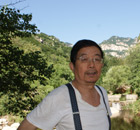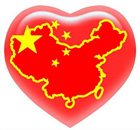Asia-Pacific
Brazil, India renew commitment to strategic alliance
(Xinhua)
Updated: 2010-04-16 04:45
 |
Large Medium Small |
BRASILIA - Brazilian President Luiz Inacio Lula da Silva and Indian Prime Minister Manmohan Singh renewed in a bilateral meeting Thursday in Brasilia their governments' commitment to the strategic alliance between both countries and expressed satisfaction at the growing bilateral relations.
| ||||
In a joint statement released by the Brazilian Foreign Ministry after the meeting, Lula and Singh expressed satisfaction with the continued expansion of bilateral trade, which reached 5.6 billion US dollars in 2009, and bilateral investment in various fields.
Opportunities in the areas of energy, agriculture, mining, pharmaceuticals, infrastructure and construction were highlighted as the ones where investment may be expanded.
They welcomed the entry into force of the trade preference agreement between the Mercosur (bloc comprising Brazil, Argentina, Paraguay and Uruguay) and India in June 2009, and highlighted the need to increase the number of tariff lines of the agreement for expansion.
They expressed satisfaction with the current bilateral cooperation in the area of defense, particularly in the joint development of high-tech military aircraft.
The two leaders agreed on the "urgent need" for strengthening the participation of developing countries in multilateral financial institutions such as the International Monetary Fund and the World Bank, as well as in political institutions such as the United Nations.
The leaders called on countries participating in the Doha Round talks to work towards a balanced agreement.
"The prolonged inconclusiveness of the negotiations may threaten the credibility of the rule-based multilateral trading system, which has proved its relevance in resisting protectionism during the recent global economic crisis," the statement said.
The two leaders expressed their concern with climate change and pledged to work in close coordination of positions in order to obtain "comprehensive, balanced and effective" results in the meetings in Cancun, Mexico, to be held in November and December 2010.










